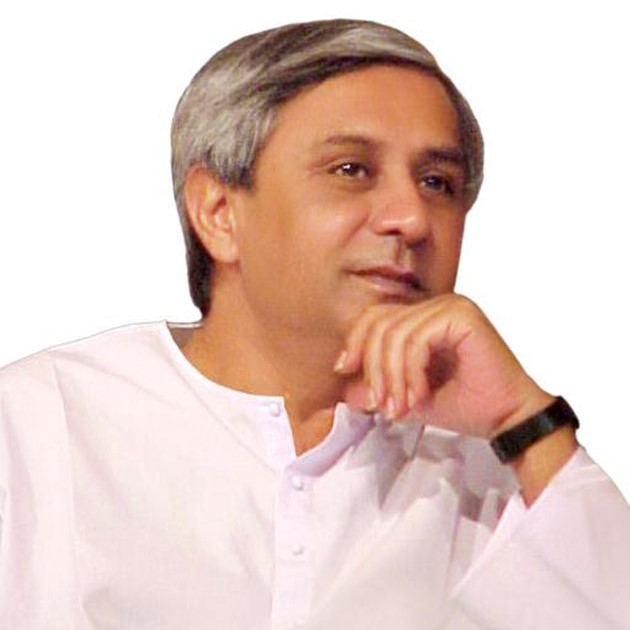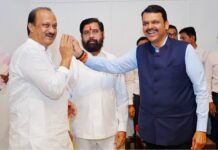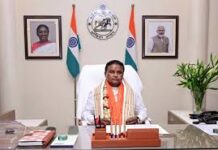Chief Minister, Naveen Patnaik has succeeded in ruling the state for the longest period because he knows the art of being flexible in politics. His political approach has been one of pragmatism, doing the right thing at the right time. He has always taken the right decisions at the right time and at the same time kept the state firmly on the path of development.
Chief minister Naveen Patnaik has become a master in the art of politics. Though he made a rather late and reluctant entry into the field he has been quick to learn the ropes. The basic principle of his political strategy is pragmatism with a keen eye on the welfare of the people he rules and on the objectives of the regional party—Biju Janata Dal (BJD)—that he leads.
He has also honed the skill of turning foes into friends quickly and avoiding confrontations where necessary. An excellent example of this is the strategic silence he maintained on the issue of Prime Minister, Narendra Modi’s much-talked about ‘bhoomipujan’ for the construction of Ram temple at Ayodhya. Naveen, who comments on almost all the important developments in the country these days, chose silence on this important issue which had raised eyebrows in political circles. What made him keep quiet is a question being asked. It is significant to mentuion that RSS chief Mohan Bhagwat and UP chief minister Yogi Adityanath also took part in the ceremony at Ayodhya and also delivered speeches.
It is pertinent to recall that Naveen has mended fences with Modi since the results of the last elections were announced and showed clearly that while he was the clear choice of the people for the post of the chief minister a lot of people voted for the BJP in the Lok Sabha polls because they wanted to see Modi as the Prime Minister. This is the reason BJP won eight lok Sabha seats including all the five at stake in western Odisha.
It is obvious that Naveen in his fifth term as the chief minister of the state is in no mood to have a confrontation with the Centre or the top BJP brass. He rather stands for conciliation and cooperation because it suits him and the needs of the state that he rules now. His relations with Modi, therefore, have been cordial and he has been supporting the BJP-led National Democratic Alliance (NDA) government on crucial issues including triple talaq and revocation of special status of Jammu and Kashmir. His party even supported the Citizenship Amendment Act (CAA) even at the risk of ruffling feathers among Muslim community members. Patnaik later assured community leaders that he would now allow National Citizenship Register (NCR) to take place in Odisha. Thus Patnaik has been trying to strike a balance between the two, keeping both the Modi-led NDA and the minorities of the state happy. This has been the defining trait of his politics in his current term which has seen a conscious effort by him to build bridges with Narendra Modi government whose support he badly needs to keep many of his populist schemes going.
This his silence on the Ram Mandir “bhomipujan” issue is nothing but strategic and another example of his political expediency. He has been flexible where necessary and this has also been justified by a set of his party leaders as political necessity. Remember that Naveen had little hesitation dumping the BJP, his alliance partner for over a decade in Odisha, on the eve of 2009 elections. His followers had then accused the BJP of being communal communal and its adherents were seen as having a played a role, direct or indirect, in the Kandhmal riots of 2008. That became an excuse to part ways with the BJP which even otherwise had become a burden on the BJD, the senior coalition partner. In the elections that followed the collapse of the alliance BJD won a resounding victory while BJP was reduced to a single digit status in the state assembly.
The results proved beyond doubt that BJP had been riding BJD piggyback and did not have much strength of its own. Hence what was wrong in Naveen dumping the party, goes one argument. The fact is that the alliance had outlived its utility for Patnaik who did not need the crutch of BJP anymore and had become capable of leading his party to victory on his own. But by dispensing with the BJP in the manner he did it he showed that he was a clever politician who knows his marbles and can make his choices without being bothered about the niceties of coalition dharma. The same Patnaik is now in the good books of Prime Minister, Narendra Modi because he needs Centre’s support to run state’s finances properly and to keep going his many welfare schemes which have brought him rich political dividends. Modi, too, needs Naveen’s support to tide over difficult situations in the parliament, especially the Rajya Sabha where his NDA lacks the right numbers. Hence, Patnaik’s avowed policy of maintaining equidistance from BJP and the Congress has been quite flexible to suit the needs of his party and the state. This is what is called politics of pragmatism.
While thus keeping the Centre’s happy Naveen has also been doing his best to keep the state firmly on the path of development and keeping it ahead of most other states of the country as far as the war against corona virus is concerned. He has also succeeded in changing the image of the state with his developmental initiatives. Thus the state which was once synonymous with hunger and poverty is today counted among the frontline states of the country in the development index.
This feat he has achieved through hard work and single-minded dedication, the most important impact of which was felt on the state’s economy which was lying in a bad shape when Naveen took charge of the state for the first time in 2000 in the wake of a disastrous super-cyclone. On the other hand thanks to the social welfare schemes launched by Naveen Patnaik government Odisha is no more infamous for its high maternal and infant mortality rates. The maternal mortality rate in the state had come down significantly to 150 per one lakh live births. Empowerment of women through Mission Shakti, an initiative to organize rural women in income-generating Self Help Groups (SHGs), has been another spectacular achievement of the government led by Naveen Patnaik who sent a septuagenarian SHG leader, Pramila Bisoi to the Lok Sabha from Aska in his home district of Ganjam last year. It was a shining example of empowerment of women and a step towards fulfilment of Patnaik’s commitment to give one third of his party, Biju Janata Dal’s Lok Sabha tickets to women. Through steps such as these Patnaik has transformed the image of Odisha.






































